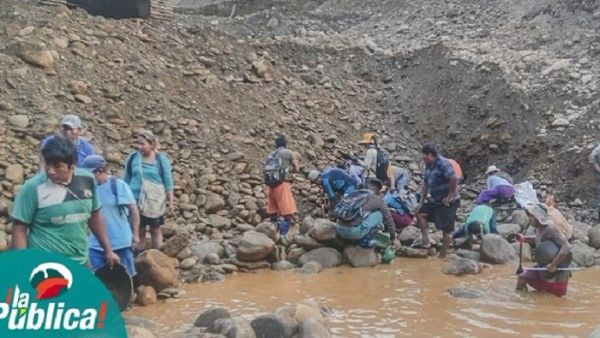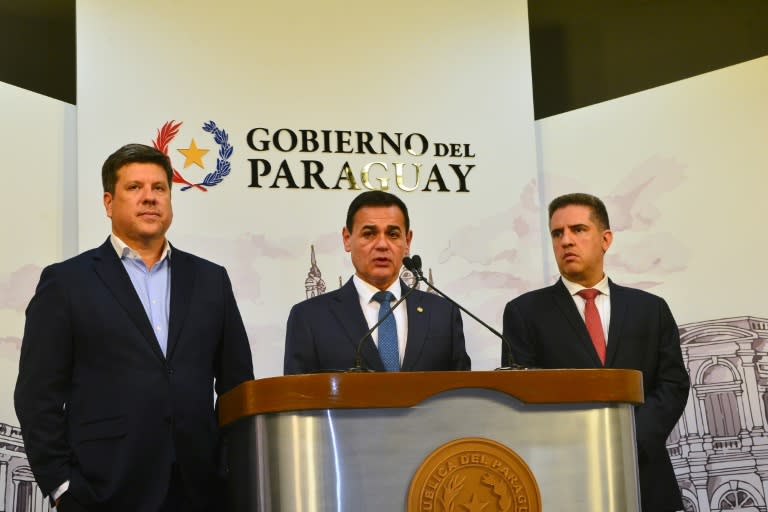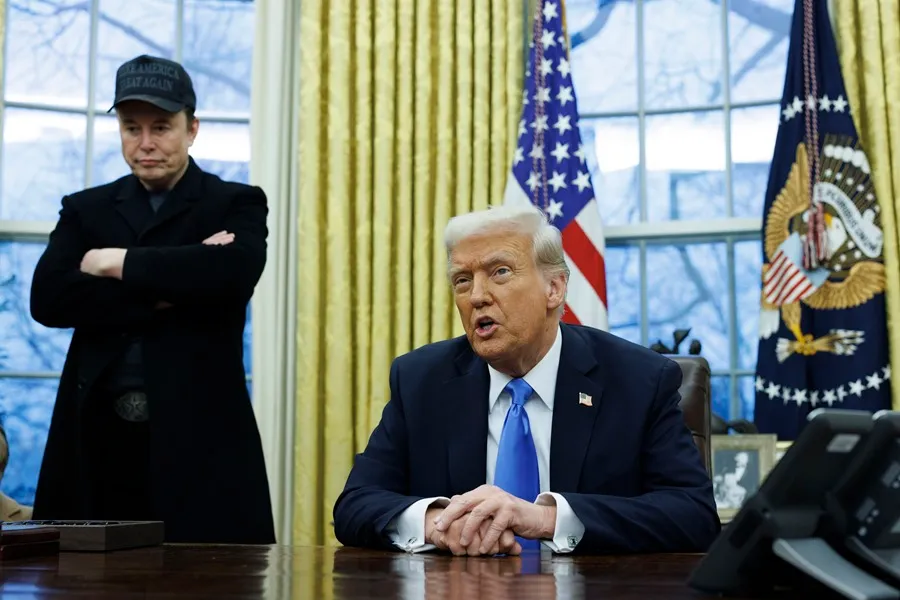International
Bolivian government declares war against illegal mining

July 18 |
Bolivia’s Minister of Health, María Renée Castro, in coordination with the Ministry of Mining and the Ministry of Environment and Water, presented on Monday a national plan with actions aimed at protecting the health of the population from the use of mercury in illegal mining.
The minister revealed that, as part of these actions, a Mercury and Health Plan was implemented, still in draft stage, designed in coordination with toxicology specialists of the Andean country, in addition to the help of representatives of the Pan American Health Organization (PAHO).
“As a national government we have a very important task that has also been an instruction from our president (Luis Arce) which has been to work for the life and health of our population,” said Minister Castro.
In another moment of her speech, she stated that “In that sense, it also has to do with the issue of mercury and the effect it has on the health of our people, especially those who live near these places where there is mining exploitation”.
Likewise, the Health Minister stated that the greatest contamination with mercury is that which is carried out through illegal mining. “That is why we are fighting against illegal mining, which has catastrophic effects on the population and the lives of our people, our environment and animals,” she emphasized.
The official stressed that unprotected interaction with mercury can cause negative effects on the development of children, pregnant women and the renal system of individuals who are in close proximity to illegal mining activities.
It also transpired that a Technical Guide for the Clinical Diagnosis, Treatment and Surveillance of Mercury Poisoning in Bolivia is being drafted, which will be revised in the next few days to be ready in August as expected.
The general objective of this Plan is to establish strategic lines for the orientation of health and medical assistance actions to achieve the reduction of the risks and harmful effects of mercury exposure in the Bolivian population.
Among its strategic lines are the evaluation and management of risk in the exposed population, the strengthening of the health system for the care of this population, risk communication, education, reduction, elimination and management of products with mercury and, finally, the management of the regulatory framework for chemical substances.
According to Minister Castro, “an inter-ministerial round table will be established to analyze this important problem that today is affecting the health of our women, pregnant women, children in the womb, adults and is also strongly affecting our biodiversity,” she said.
Finally, he informed that in the next few days interventions will be undertaken in the departments of Cochabamba and Santa Cruz to gather information in more than 36 communities, to attend to their inhabitants with medical brigades specialized in the treatment of the ailments caused by mercury exposure.
International
Paraguay summons Brazilian ambassador over Itaipú espionage scandal

Paraguay summoned the Brazilian ambassador in Asunción on Tuesday to demand “explanations” and called its own representative in Brasília for consultations following Brazil’s acknowledgment of an espionage operation. The Brazilian government, led by President Luiz Inácio Lula da Silva, attributed the operation to the previous administration.
The surveillance effort aimed to uncover Paraguay’s position in now-suspended negotiations with Brazil regarding the pricing of electricity from the binational Itaipú hydroelectric plant, according to reports in the Brazilian press.
The Brazilian government “categorically denied any involvement in the intelligence operation,” stating in a Foreign Ministry communiqué on Monday that the espionage was carried out under former President Jair Bolsonaro’s administration (2019-2023).
“The operation was authorized by the previous government in June 2022 and was annulled by the interim director of the (state intelligence agency) ABIN on March 27, 2023, as soon as the current administration became aware of it,” Brazil’s government asserted.
Paraguay’s Foreign Minister Rubén Ramírez announced that Brazilian Ambassador José Antonio Marcondes de Carvalho was summoned “to provide detailed explanations” regarding the operation. Additionally, Paraguay recalled its diplomatic representative in Brasília “to report on aspects related to the intelligence activity conducted by Brazil regarding Paraguay’s government affairs.”
International
Elon Musk to step down as government advisor, per Trump insiders

President Donald Trump has informed his inner circle that Elon Musk will be stepping down from his role as a government advisor, according to a report by Politico today.
Citing three individuals close to Trump, Politico states that the president is pleased with Musk’s leadership at the Department of Government Efficiency (DOGE), where he has implemented significant budget cuts. However, both have agreed that it is time for Musk to return to his businesses and support Trump from a different position outside the government.
A senior administration official told Politico that Musk will likely maintain an informal advisory role and continue to be an occasional visitor to the White House. Another source warned that anyone thinking Musk will completely disappear from Trump’s circle is “deluding themselves.”
According to the sources, this transition is expected to coincide with the end of Musk’s tenure as a “special government employee,” a temporary status that exempts him from certain ethics and conflict-of-interest regulations. This 130-day period is set to expire in late May or early June.
International
Milei vows to make Argentina so strong that Falkland Islanders “choose” to join

Argentine President Javier Milei reaffirmed his country’s claim over the Falkland Islands (known as the Islas Malvinas in Argentina) and praised the role of the nation’s armed forces during a ceremony marking the “Veterans and Fallen Soldiers of the Malvinas War Day,” commemorating 43 years since the 1982 conflict with the United Kingdom.
Argentina continues to assert sovereignty over the islands, arguing that Britain unlawfully seized them in 1833.
“If sovereignty over the Malvinas is the issue, we have always made it clear that the most important vote is the one cast with one’s feet. We hope that one day, the Malvinas residents will choose to vote with their feet and join us,” Milei stated.
“That is why we aim to become a global power—so much so that they would prefer to be Argentine, making deterrence or persuasion unnecessary. This is why we have embarked on a path of liberation, working to make Argentina the freest country in the world and once again the nation with the highest GDP per capita on the planet,” he added.
-

 Central America3 days ago
Central America3 days agoU.S. Homeland Security Secretary urges Mexico to strengthen Guatemala border
-

 Central America3 days ago
Central America3 days agoPanama grants Martinelli 72-hour extension to travel to Nicaragua
-

 International2 days ago
International2 days agoParaguay summons Brazilian ambassador over Itaipú espionage scandal
-

 Central America4 days ago
Central America4 days agoPanama police clarifies that Interpol alert for Martinelli is still pending
-

 International3 days ago
International3 days agoTrump urges Putin to reach peace deal
-

 International4 days ago
International4 days agoDeportation flight lands in Venezuela; government denies criminal gang links
-

 Sports2 days ago
Sports2 days agoFilipe Luis debuts as coach in Copa Libertadores with Flamengo
-

 Central America2 days ago
Central America2 days agoGuatemalan police officer killed in mob riots over baby kidnapping
-

 International2 days ago
International2 days agoElon Musk to step down as government advisor, per Trump insiders
-

 Sports2 days ago
Sports2 days agoVenezuela investigates 18 baseball players seeking asylum in Spain
-

 International2 days ago
International2 days agoMilei vows to make Argentina so strong that Falkland Islanders “choose” to join
-

 International2 days ago
International2 days agoICE agent’s arrest of suspect sparks controversy in Boston
-

 International2 days ago
International2 days agoÓscar Arias: Trump’s trade policies are a step backward















